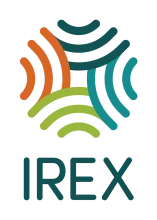Institutions should operate with data that is inclusive and reflective of the communities they serve to avoid perpetuating socioeconomic inequities, discrimination and mistrust, particularly among marginalized populations. For data to be truly inclusive, it must accurately describe all people’s realities and be produced and used with their knowledge, consent, and participation. This requires engagement, dialogue, and partnerships between governments, organizations, and communities.
Over the last several years interest, momentum, and action on inclusive data partnerships has increased dramatically. There is now broad recognition that those most affected by how data is produced and used should have a say in decision making, with many actors exploring innovative approaches to achieving this.
However, there remain challenges with ensuring that inclusive data partnerships do not replicate the power imbalances and inequalities that they aim to tackle. While institutions increasingly invest in their data systems, they often miss a critical opportunity on how to close existing data gaps that inadvertently facilitate discrimination and bias. We are at a critical point where learnings, insights and successful, emerging practices need to be consolidated and shared to inform future engagement.
Through an interactive session, the Inclusive Data Charter (IDC) and IREX will bring together diverse practitioners in the data for development community to discuss their innovative approaches to inclusive data, the challenges they faced in the process, and how partnerships helped mitigate those challenges.
The session will begin with short opening impact stories from panelists highlighting a range of inclusive data partnerships which have informed policies and programs and improved peoples’ lives. We’ll then split into smaller, breakout discussion groups, both in-person and virtually, facilitated by inclusive data practitioners to foster open knowledge exchange and spur new connections.
We’ll then convene all participants together and use an online poll to gather participants’ reflections and insights. The IDC and IREX will consolidate the takeaways from the session into a written knowledge product available online. By the end of this session, we aim to surface and share new insights and learnings which can shape the future of the IDC’s work and guide existing and new partnerships.
Organiser(s): Global Partnership for Sustainable Development Data (GPSDD); Internation Research and Exchange Board (IREX).
Speakers: Debra Prestwood; Neema Iyer; Philip Davidovich; Rasak Adekoya
